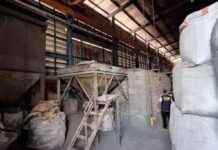Thailand’s baht is experiencing its strongest rally since 1998, posing a threat to the nation’s vital tourism and export industries. The currency has surged by 10% against the dollar in the past quarter, prompting concerns from various sectors about the impact on the economy. Calls have been made for the Bank of Thailand (BoT) to intervene and stabilize the baht to prevent further volatility.
Tourism and hotel sectors, as well as business chambers, are among those urging for action to address the baht’s rapid appreciation. While the baht’s rally has been attributed to the weakening of the US dollar, the significant gain compared to other trade partner currencies could lead to a shift in sourcing for cheaper alternatives. This situation has raised alarms in the tourism sector, with fears that the strong baht could eventually dampen shopping and hotel spending by foreign visitors.
The current scenario presents a challenge for Prime Minister Paetongtarn Shinawatra, who has pledged to boost Thailand’s economy and reduce the cost of living. Despite lagging behind neighboring countries like Indonesia and the Philippines in terms of GDP growth, Thailand has relied on tourism and exports to drive economic growth. With exports accounting for nearly 60% of GDP, the sharp appreciation of the baht is adding to the challenges faced by exporters, including high production costs and competition from cheap imports.
The Federation of Thai Industries (FTI) has expressed concerns about the impact of the baht’s volatility on exporters, calling for stability in the currency to alleviate financial burdens. The current fluctuation in the baht’s value has made it difficult for exporters to conduct business effectively, further straining the sector. Deputy Finance Minister Paopoom emphasized the need for a balanced and stable exchange rate to support local businesses and prevent excessive volatility that could harm the economy.
Subheadings:
### Economic Impact of Baht Rally
The recent surge in the baht’s value has sparked discussions about its economic implications, particularly on key sectors such as tourism and exports. The tourism industry, which has been a significant contributor to Thailand’s economy, is at risk of being negatively affected by the strong baht. Foreign tourists may find it more expensive to shop and stay in hotels, potentially impacting their spending behavior and overall contribution to the economy.
### Government Response and Policy Measures
In response to the baht’s rally, government officials and industry leaders have called for action to stabilize the currency and mitigate its impact on local businesses. The Bank of Thailand has been urged to intervene and prevent excessive exchange rate fluctuations that could harm the economy. Policy measures may be necessary to address the challenges faced by exporters and ensure a conducive environment for sustainable economic growth.
### Future Outlook and Challenges
Looking ahead, Thailand faces the challenge of maintaining its economic momentum in the face of a strong baht and global economic uncertainties. The government’s efforts to stimulate economic growth and support key industries will be crucial in navigating the current landscape. As the country strives to meet its tourism targets and sustain export growth, addressing the baht’s volatility will be a key priority to ensure long-term stability and competitiveness.
In conclusion, the baht’s strongest rally since 1998 presents a significant threat to Thailand’s tourism and export industries. Government intervention and policy measures will be essential to address the challenges posed by the currency’s appreciation and ensure sustainable economic growth. By taking proactive steps to stabilize the baht and support local businesses, Thailand can overcome the current economic hurdles and strive towards a more resilient and prosperous future.




















